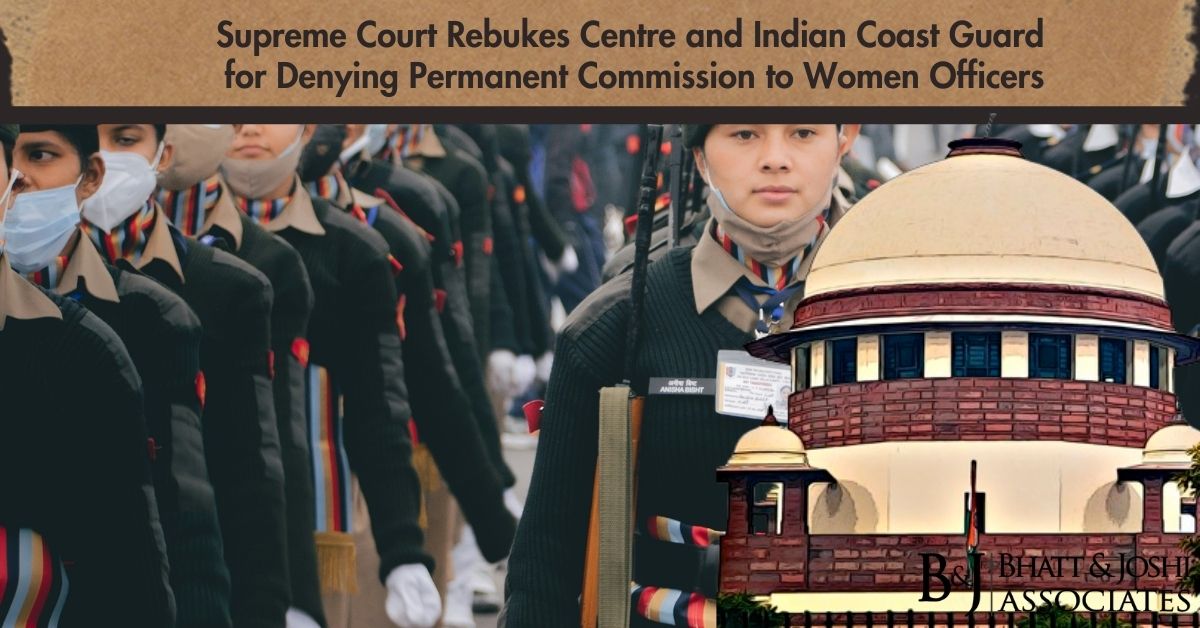Introduction
In a scathing rebuke, the Supreme Court of India criticized the Centre and the Indian Coast Guard for their refusal to grant Permanent Commission to Women Officers, highlighting gender bias within the maritime force. The court directed the Coast Guard to formulate a policy ensuring fair treatment of women in the service. The case, brought forward by woman officer Priyanka Tyagi, has ignited discussions on gender equality and the need for a more inclusive approach within the armed forces.
Denouncement of Patriarchal Attitudes
The apex court expressed strong dissatisfaction with the Centre and the Indian Coast Guard, questioning their reluctance to grant permanent commission to women officers. The bench, consisting of Chief Justice DY Chandrachud and Justices JB Pardiwala and Manoj Misra, criticized the patriarchal approach evident in the denial of the woman officer’s plea. The judges emphasized the contradiction between the government’s rhetoric of ‘nari shakti’ (woman power) and the discriminatory practices faced by women in the Coast Guard.
Call for Policy Reform: Granting Permanent Commission to Women Officers
The court urged the Indian Coast Guard to formulate a comprehensive policy that treats women fairly within the service. The directive reflects a broader call for systemic changes to eliminate gender bias and ensure equal opportunities for women in the armed forces. The bench emphasized the need for a gender-neutral policy, aligning with previous judgments that granted permanent commission to women officers in the Army, Air Force, and Navy.
Questioning the 10% Provision
During the proceedings, the court questioned the rationale behind the Coast Guard’s provision of a 10% permanent commission for women officers. The judges criticized this limited allocation, challenging the notion that women are somehow lesser human beings deserving only a fraction of the opportunities available to their male counterparts. The court drew attention to the Indian Navy’s proactive approach in granting permanent commissions to women officers and questioned why the Coast Guard was lagging behind in this regard.
The judgment in 2020, directing the Indian Armed Forces to grant Permanent Commissions to women in the army across all streams, serves as a historical backdrop to the current case. Despite this directive, the Coast Guard’s resistance to embracing gender equality has prompted renewed scrutiny of entrenched patriarchal attitudes within certain branches of the armed forces.
Conclusion: Upholding Permanent Commission for Women Officers
The Supreme Court’s reprimand of the Centre and the Indian Coast Guard underscores the imperative for gender equality and fair treatment of women within the armed forces. The call for a comprehensive policy reflects a broader societal shift towards inclusivity and challenges deeply ingrained patriarchal norms. As the case unfolds, it highlights the ongoing struggle for women’s rights within traditionally male-dominated spheres, emphasizing the importance of systemic reforms to ensure equal opportunities and recognition for women officers in the Indian Coast Guard and beyond.














